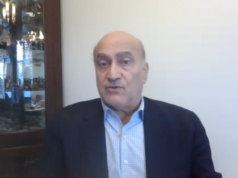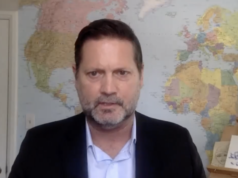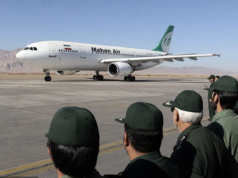Board members of Iraq’s Independent High Electoral Commission (IHEC) resigned on Tuesday, just one month before nationwide parliamentary elections scheduled for April 30th. The IHEC is caught between the judicial and legislative branches over the exclusion of certain candidates running in the election. The dispute leaves the integrity of upcoming elections in doubt.
According to Iraqi electoral law, candidates with an “ill” reputation are barred from contesting parliamentary seats. But the courts and parliament have voiced contradictory interpretations of this vague clause, compromising the Election Commission’s ability to act independently.

An employee of the Independent High Electoral Commission sits on ballot boxes at a tally center in Baghdad, April 23, 2013. (Photo: Reuters) |
Critics accuse Prime Minister Nouri Maliki of using the reputation clause to remove opposition politicians from the ballot. A judicial panel decided to ban candidates with outstanding arrest warrants, effectively barring former Finance Minister Rafa al-Issawi and several other parliamentarians who oppose the prime minister. The court’s ruling also leaves the candidates without means to appeal. Parliament however, has decreed that no candidate should be rejected unless they have a criminal conviction.
The disagreement over the IHEC and election fairness comes amid Iraq’s ongoing and increasing security challenges. Prime Minister Maliki faces criticism about his security policies amid rising violence in the restive Anbar province. So far this year, Iraqi security forces have been unable to regain control of Fallujah from al-Qaeda-linked terrorists, and local Sunni tribes have clashed with government troops in Ramadi. On the same day as the IHEC resignations, 37 people died in attacks across Iraq, bringing the death toll to 400 this month and 2,100 thus far in 2014.
In Brussels this week, President Obama said, “We ended our war and left Iraq to its people in a fully sovereign Iraqi state that can make decisions about its own future.” Security challenges and electoral infighting, however, are indications that the war in Iraq continues.





